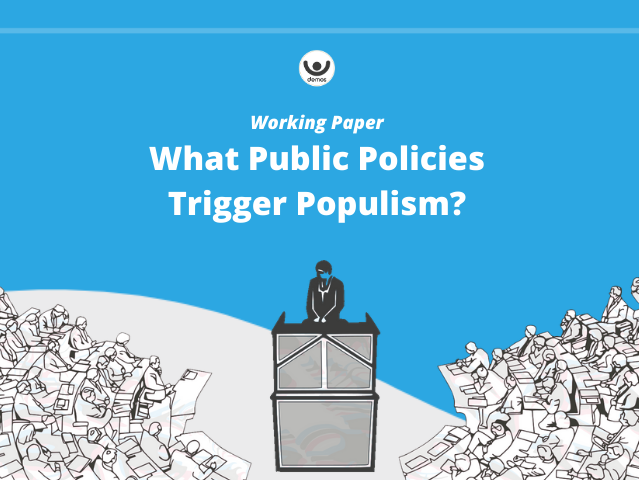Social Exclusion, Polarised Societies, and Technocracy Leads to Populism, New Study Argues
More than causing an economic shock, the 2008 financial crisis left behind a stronger support for populist parties across most of the EU’s Member States. Support has been stronger in Hungary, Greece, Poland, and Italy. These are the main findings of a working paper, released by DEMOS today, which investigates what public policies have triggered the latest rise of populism in Europe. By analysing international datasets between 2008 and 2016 and four national case studies, the research found that country context matters. Policies that leave behind a vulnerable landscape of greater poverty, social exclusion, and high unemployment trigger citizens’ support for populism, particularly the left-wing type. The lack of policies favouring job creation and educational training for citizens between 15 and 34 years old was also found to predict populist attitudes. “This may be a first step in the rise of populism”, says Attila Bartha, from the Centre for Social Sciences in Budapest, who led the research. “When a skilful political entrepreneur embraces populism and there is a supply of populist parties, public support for populist forces will increase.” MORE INFORMATION Read the full press release and download the working paper on policies that trigger populism at: https://demos-h2020.eu/en/social-exclusion-polarised-societies-and-technocratic-governance-leads-to-populism-new-study-argues
Keywords
DEMOS, H2020, Public Policy, Populist Policy, Populism, Unemployment, Technocracy, Governance, Europe, Hungary, Greece, Poland, financial crisis, 2008, populist rise



